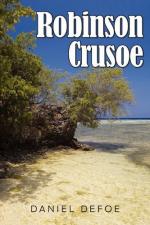The sixth day of our being at sea we came into Yarmouth Roads; the wind having been contrary, and the weather calm, we had made but little way since the storm. Here we were obliged to come to anchor, and here we lay, the wind continuing contrary, viz. at south-west, for seven or eight days, during which tune a great many ships from Newcastle came into the same roads, as the common harbour where the ships might wait for a wind for the River.
We had not, however, rid here so long, but should have tided it up the river, but that the wind blew too fresh; and, after we had lain four or five days, blew very hard. However, the roads being reckoned as good as a harbour, the anchorage good, and our ground tackle very strong, our men were unconcerned, and not in the least apprehensive of danger, but spent the time in rest and mirth, after the manner of the sea; but the eighth day in the morning the wind increased, and we had all hands at work to strike our top-masts, and make every thing snug and close, that the ship might ride as easy as possible. By noon the sea went very high indeed, and our ship rode forecastle in, shipped several seas, and we thought once or twice our anchor had come home; upon which our master ordered out the sheet anchor; so that we rode with two anchors a-head, and the cables veered out to the better end.
By this time it blew a terrible storm indeed; and now I began to see terror and amazement in the faces even of the seamen themselves. The master, though vigilant in the business of preserving the ship, yet as he went in and out of his cabin by me, I could hear him softly say to himself several times, “Lord, be merciful to us! we shall be all lost; we shall be all undone!” and the like. During these first hurries I was stupid, lying still in my cabin, which was in the steerage, and cannot describe my temper: I could ill reassume the first penitence which I had so apparently trampled upon, and hardened myself against. I thought the bitterness of death




